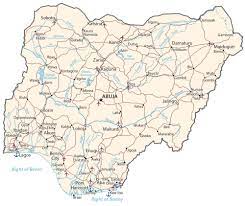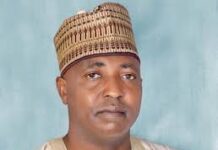When a government tries to rewrite history, what happens to national memory? In this explosive episode of The Other Side, Rimamnde Shawulu Kwewum analyzes the shocking decision by President Bola Ahmed Tinubu’s administration to pardon the late nationalist Chief Herbert Macaulay — a move that has triggered confusion, anger, and public debate across Nigeria and beyond.
The announcement came through a State House press release issued by the President’s media aide, Bayo Onanuga, titled “President Bola Tinubu Pardons Herbert Macaulay, Farouk Lawan, Grants Clemency to 82 Inmates.” It was meant to be a symbolic gesture, but instead it reopened wounds, raised troubling legal questions, and diminished the legacy of one of Nigeria’s founding fathers.
As Rimamnde explains, the act of “pardoning” a man who died in 1946, before Nigeria even became an independent nation, and who is already recognized by law as a National Hero, was a serious error in historical and moral judgment.
Key Questions Raised in This Episode:
• How can Nigeria “pardon” a man convicted in 1913 — before the country even existed?
• Why does the government’s gesture now make people search online for “Herbert Macaulay crimes”?
• Did this action unintentionally defame a national icon whose name is enshrined in the National Heroes Register?
• What message does it send to young Nigerians — that every crime, even the moral ones, can be wiped away by political decree?
Rimamnde revisits the National Heroes Act (1979), passed by the military before handover to civilian rule, which lists Herbert Macaulay, Alvan Ikoku, Tafawa Balewa, and Murtala Mohammed among men of “undoubted integrity.”
According to this law, anyone on the register must have a record free of criminal stain — making the Tinubu government’s pardon not only unnecessary but deeply insulting to the memory of Macaulay and to Nigeria’s institutional memory.
The episode also exposes how this “pardon” could send a dangerous signal: “If you commit a crime, someday a government will come and wipe it clean.” This, Rimamnde warns, erodes accountability and normalizes moral decay in public leadership.
It also damages the psyche of young Nigerians who now see their heroes associated with “conviction” — even when history had already cleared their names. By attempting to correct what was never broken, the government has, in his words, “Stripped Herbert Macaulay naked in the marketplace.”
This episode of The Other Side is more than a critique — it’s a defense of historical truth, national integrity, and moral responsibility.
Watch the full video to understand how this decision affects Nigeria’s history and image worldwide.
What do you think? Was this pardon an act of ignorance or a calculated political gesture? Subscribe to The Other Side with Rimamnde Shawulu for weekly insights on Nigeria’s politics, leadership, and democracy.
#TheOtherSide #RimamndeShawulu #NigeriaPolitics #HerbertMacaulay #NigeriaHistory #Governance #Democracy #NationalHeroes #PardonControversy #NigeriaNews #Leadership #MoralCrisis #ColonialHistory #PoliticalAnalysis #APC #PresidentialActions
Join this channel to get access to perks: https://www.youtube.com/channel/UC0F3fBLsmMzNsCjtyDcT1rQ/join










